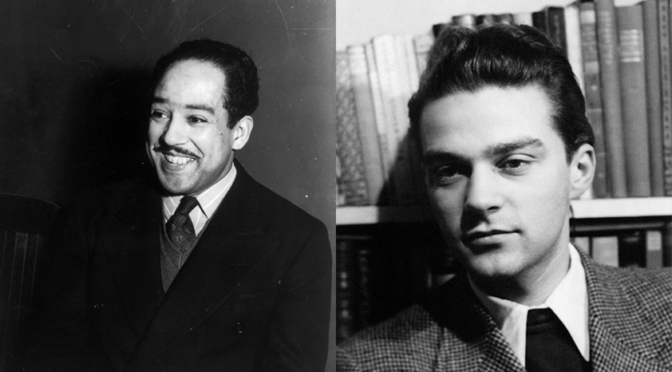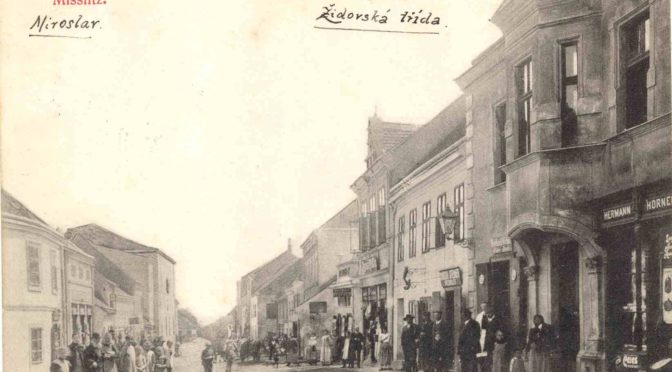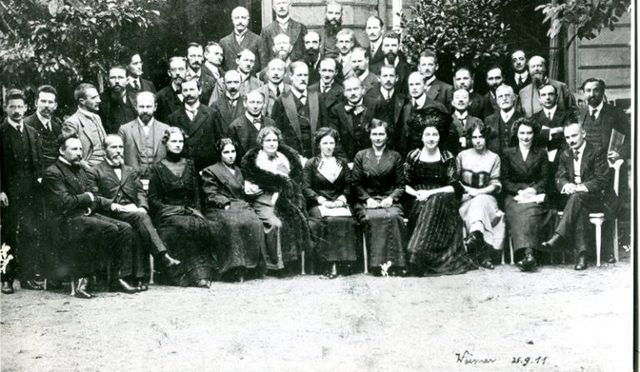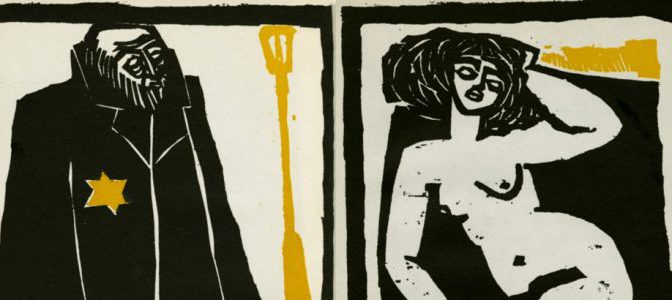
The eighth session of IMS / CEFRES epistemological seminar of this year will be hosted by
Julien Wacquez (CEFRES / EHESS)
Is ‘Hard Science’ a Limit to the Concept of ‘Field’?
Where: CEFRES Library – Na Florenci 3, Prague 1
When: Wednesday 17 April 2019 from 4:30 pm to 6 pm
Language: English
Text:
- Bourdieu, Pierre & Wacquant, Loïc (1992), “The Logic of Fields,” in An Invitation to Reflexive Sociology, Pierre Bourdieu & Loïc Wacquant, The University of Chicago Press, 1992, pp. 94-115
- Materials on Larry Niven’s Ringworld (1970) novel, by Julien Wacquez

What were the intertextual relationships between the African American poet Langston Hughes and the Czech poet Ivan Blatný? How did Blatný employ English in his poetry, how did Hughes use references to Czechoslovakia? How do poets and poems move across languages and power blocs and what were other literary relationships between the Czech lands and the African American cultural community? And what roles does translation play here? These are some of the questions we will be discussing with Julie Hansen, Charles Sabatos, and Justin Quinn. The discussion, co-organized by the Institute of Czech Literature and CEFRES, will take place in English (or rather, it will move between English and Czech) and will be moderated by Františka Schormová. Continue reading Ivan Blatný, Langston Hughes: Translation, Transnationality, and the Blues →

A lecture by Daniela Bartáková (Masaryk Institute and Archives of the Czech Academy of Science), in the frame of the seminar on Modern Jewish History organized by the Masaryk Institute and Archives of the Czech Academy of Sciences, Charles University, CEFRES and the Prague Center for Jewish Studies.
Where: The session will be conducted over a videoconferencing platform. Registration: bartakova@mua.cas.cz
When: Wednesday 19 May 2020, from 5:30 pm to 7 pm
Language: English
Abstract
Jewish pioneer youth movements played a crucial role in the practical realization of socialist Zionism. Their activities focused on the achievement of social, national, political, and cultural goals, and last but not least, members of these movements were actively involved in the concept of building the new chosen body on the individual and collective level.
The talk will focus on the discursive understanding of the Zionist movement, its dynamic processes, and practices of social and national community shaping, which utilized the methods of bio-power on the level of individuals as well as the whole nation. Both anatomo-politics and biopolitics have become part of Zionist discursive practices. Through the adoption of these practices, Jewish pioneers contributed actively to the formation of the founding myths of the Zionist movement and the negation of the diaspora allegedly discredited through effeminacy and degeneration. Thus, they helped to reproduce the myth of returning to Palestine as the only possible way of regenerating the Jewish nation, its “normalization” and returning to history. Members of pioneer youth movements promoted a synthesis between socialism and nationalism in Palestine, which was to provide an alternative to the passive bourgeois, orthodox life of the paternal generation. The idea of equality has become one of the mobilizing motives for joining both movements. The “red assimilation” became a competitor to the Zionist movement and an alternative for pioneer Jewish youth.

A lecture by Emil Kerenji (Jack, Joseph and Morton Mandel Center for Advanced Holocaust Studies; United States Holocaust Memorial Museum, Washington), in the frame of the seminar on Modern Jewish History organized by the Masaryk Institute and Archives of the Czech Academy of Sciences, Charles University, CEFRES and the Prague Center for Jewish Studies.
Due to the new coronavirus travel restrictions, Emil Kerenji is unable to come to Prague as planned. We will offer the presentation by Emil Kerenji as a virtual seminar, taking place over the Internet with the help of a videoconferencing software. It will, however, only take place if enough of you express your interest. Please email Daniela Bartáková at bartakova@mua.cas.cz by March 20.
When: 26 March 2020, from 3 pm – VIRTUAL SEMINAR
Language: English
Abstract
This lecture will discuss the long-term project at the Mandel Center at the United States Holocaust Memorial Museum, to document Jewish perceptions of, and responses to, the series of events between 1933 and 1946 that today we understand as one unified event, the Holocaust. What were the forms of Jewish persecution as it extended beyond Nazi Germany, and eventually descended into genocide? How were they perceived on the ground, and how did geographical, political, cultural, economic, and class circumstances effect these perceptions? What were the options available to Jewish individuals, groups, institutions, and organizations in extremis, and what were some of the typical reactions? Finally, how does this history and understanding of the Jewish experience influence our understanding of the Holocaust? The lecture will also introduce a digital resource that grew out of this project, Experiencing History

Jewish Women in Psychoanalysis: Central-European Careers and Emigrations
5th session of the Seminar “Rethinking Psychoanalysis in Central Europe. Interdisciplinary and Transnational Perspectives”
When: Tuesday, June 14, 2022, 4:00-6:00 pm
Where: At CEFRES and online (to register please contact claire(@)cefres.cz)
Language: English
Coordinator : Agnieszka Sobolewska (University of Warsaw/Sorbonne University/CEFRES)
Guest-speakers :
- Klara Naszkowska (Union Theological Seminary/Center for Jewish History)
- Anna Borgos (Hungarian Academy of Sciences)
Discussants :
- Clara Royer (Sorbonne University)
- Mateusz Chmurski (Sorbonne University)
- Mathieu Lericq (Sorbonne University)

A lecture by Ilana Miller (University of Chicago) in the frame of the seminar on Modern Jewish History of the ÚSD AV ČR and CEFRES in partnership with the Jewish Museum.
Where: CEFRES library – Na Florenci 3, 110 00 Prague 1
When: 5 pm to 7 pm
Language: English
Abstract
Was there such a thing as “Jewish popular culture” under communism? In this presentation, I use data collected from the publishing and film industries to examine moments of increased popularity in Jewish themes in Czechoslovak culture. While the rapid rise in interest in Jewish themes in post-communist culture has been written about extensively, few have taken seriously the possibility of widespread interest in Jewish themes under communism. By examining trends in mainstream literary and cinematic culture, I show that the 1960’s boom in interest in Jewish themes rivalled the post-communist period. While the post-communist period was heavily influenced by foreign and external cultural trends, communist era literature and films were far more domestic—both in their creation as well as in their themes and focus. Using distribution and publication data, reviews, movie posters and illustrations, this presentation explores the characteristics and qualities of Jewish popular culture under communism, particularly the role that Jewish themes played during the era of communist reform.
Illustrations by Zdeněk Chotěnovský from Hana Bělohradská, Bez krásy, bez límce (1964).






